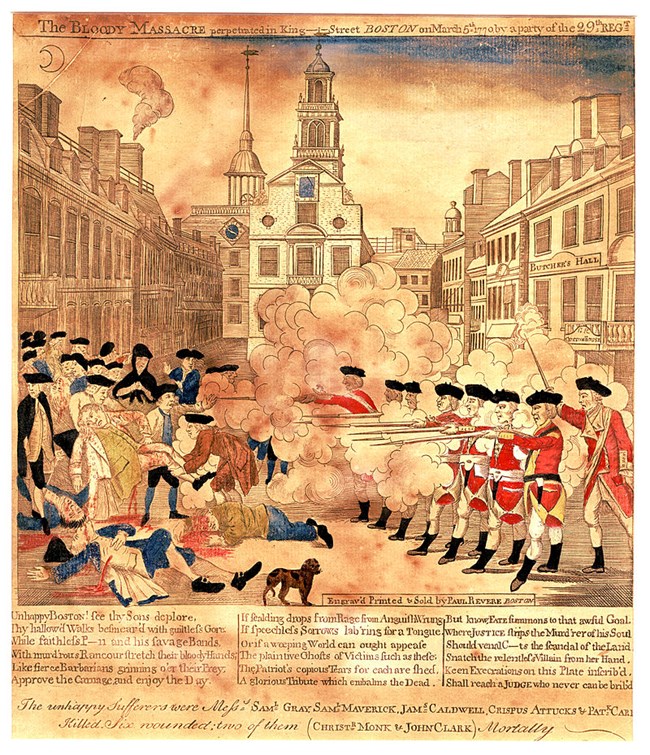October 24, 1770. Boston, Massachusetts.
John Adams’ client, Captain Thomas Preston, was probably the most hated man in Boston, at least among those agitating for American independence.
Seven months earlier, Preston led a handful of British soldiers (a.k.a. redcoats) to the King’s Custom House to protect a fellow solider being attacked by a large group of irate Colonists. Though details are sketchy, in the end, the soldiers fired into the crowd and six colonists lay dead, with five wounded.
Preston and the soldiers were immediately arrested and American patriots sprang into action. Some Colonists portrayed the events as an unprovoked attack and named it the “Boston Massacre.” Paul Revere made his famous engraving showing Preston and the soldiers firing callously into the crowd. Tensions between the British and Americans were at an all-time high.
But despite the perilousness of the situation, several men—like John Adams—stepped forward to ensure that the soldiers were provided a proper legal defense in court. It didn’t matter to Adams that his clients were hated British soldiers, or that Massachusetts could soon be at war with these very men. In his eyes, all individuals deserved to be treated equally in the eyes of the law. He would help enshrine this dedication for our country.
Adams was a respected lawyer, statesman, and future president of the United States, but he risked his reputation and the wrath of his countrymen to ensure justice was delivered fairly. It would not be the first time he displayed his commitment to the equal protection of the law.
CONNECT









































































































































































No comments:
Post a Comment